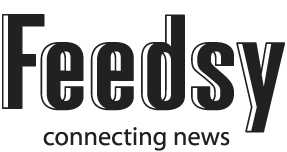Renters already struggling to find affordable homes are falling further behind, new data reveals, as funding for a landmark government housing policy comes online.
For a second year in a row, rental prices grew faster than home values, property data group CoreLogic reported on Monday.
Rent values increased at 8.3 per cent in 2023, outstripping the 8.1 per cent rise in house prices and eclipsing the four per cent rise in wages for the 12 months to September.
It follows a 9.5 per cent increase in rents in 2022 and a 9.6 per cent jump in 2021.
With rental vacancies at historic lows, additional supply is desperately needed in the market to drive prices down.
While dwelling approvals trended slightly higher in 2023, they remained relatively low.
Monthly dwelling approvals averaged 13,760 a month for the past six months, below the decade average of 17,254, CoreLogic revealed.
The Albanese government has promised to reinvigorate the sluggish home-building sector, pledging to deliver 1.2 million new dwellings over five years.
A major piece in the housing puzzle was set in place on Monday, when applications opened for the government’s Housing Australia Future Fund.
Housing Minister Julie Collins said the fund, along with the National Housing Accord, would deliver 40,000 social and affordable rentals in its first five years.
“We are working at every opportunity to get as many homes on the ground as quickly as we can, understanding that this is a difficult task and we can’t turn this around immediately,” she told reporters.
Ms Collins acknowledged a shortage of skilled workers was constraining the construction industry’s ability to deliver new homes, but said the government’s investments in fee-free TAFE and migration changes would help alleviate the issue.
“We’re also looking at innovative construction methods,” she said.
“I know that in Queensland and in Western Australia and Victoria they’re looking at modular housing and alternative construction methods so that we can get homes up as quickly as we can.”
Data from the Australian Bureau of Statistics on Friday showed first-home buyers increased their share of the market, despite rising interest rates.
“It’s first-home buyers who are leading the way with new lending commitments up by 2.8 per cent for the month and 25.8 per cent for the year,” Canstar finance expert Steve Mickenbecker said.
That’s compared to an 18 per cent increase in investor loan for the year.
“First-home buyers have in recent years had to weather the impact of rate rises on borrowing power,” Mr Mickenbecker continued.
“Purchase of a first home, especially in Sydney, is still a hefty challenge, but more buyers are breaking through the ground floor.”
There is good news for prospective home buyers, with most experts predicting the Reserve Bank to keep rates on hold in February, before it begins its cutting cycle by the end of 2024.
In a Finder survey of 19 experts and economists, 17 believe the RBA will hold the cash rate at 4.35 per cent at its February meeting. More than half predicted at least one rate cut by September.
Graham Cooke, head of consumer research at Finder, said Australians were in desperate need of a reprieve, with four in 10 mortgage holders struggling to pay their mortgage in December.
“We expect to see some relief on the horizon, and with a little luck the pressure will reduce slowly over many months,” Mr Cooke said.
Jacob Shteyman
(Australian Associated Press)






